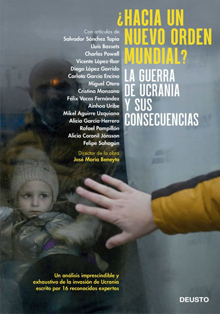Ángel Collado
In permanent flight and in profile in the face of the crisis, Pedro Sánchez is betting on announcements of populist economic measures and taking care of his separatist allies to give stability to his coalition government.
The debate on the state of the nation has served to reaffirm the commitments made with the entire far left of the House, the Catalan secessionists and the heirs of ETA’s political wing that helped him to come to power in 2018.
The head of the Executive is trying to save the summer after a year and a half of electoral setbacks for the PSOE and awaiting a complicated autumn in which he will have to present new General State Budgets that will require another return to parliamentary marketing with partners and allies.
Between the personal image bath he gave himself as host of the NATO summit in Madrid and his staged turn to the left in Congress, Sánchez aspires to raise his profile in the polls (at least in the official CIS barometer under his control) and recover the mood among his supporters and the government media.
The Basque pro-independence left, represented by Bildu, is satisfied with Sanchez’s efforts to whitewash its origins, while the ERC is also optimistic about the equal treatment that the president of the Catalan Generalitat, Pere Aragonés, is receiving from the head of the Spanish government. But the confirmation of the government’s more extreme political support contrasts with the economic outlook, which is increasingly dark and far removed from the government’s forecasts and its response to rising inflation.
The announcements of new taxes without specifying anything, except the amounts expected to be collected (7,000 million euros in two years) and Sánchez’s anti-business discourse, including expressions by Pablo Iglesias, have been lethal for the economic sectors affected and worrying for taxpayers and consumers. The words of the Prime Minister in Congress about “extraordinary profits”, which he also failed to define, cost financial institutions alone 5.9 billion euros in losses on the stock market.
Banks and energy companies are still unaware of the new taxes that have been announced, as is the opposition. The Popular Party points out, given the precedents of these populist measures applied before by Sánchez’s government, that in the end the extra money the government is looking for will come from electricity and gas bills and from banking services: credits and commissions.
Apart from the new undefined taxes, the parliamentary debate confirmed that Sánchez, far from considering far-reaching reforms, insists on concealing the magnitude of the rise in inflation and its consequences.
He assured that it would end the year at 6.5 per cent, although the Independent Authority for Fiscal Responsibility calculates 7.8 per cent and the Brussels forecasts for Spain have just been set at 8.1 per cent, above the European average. Also contrary to the theories of the head of the government sold as data, these same forecasts place the main EU economies (France, Germany and Italy) at a lower price level.
In the debate, the Prime Minister took it for granted that pensions could rise at the end of the year in line with inflation, but he did not explain how the state will be able to meet an additional bill of some 14 billion euros, a figure that experts predict, without making adjustments in other areas or increasing the public deficit.
Nor do Brussels believe the GDP growth figures offered by Sanchez’s cabinet. The 4.3 per cent for this year and the 3.5 per cent for 2023 forecast by the government, they estimate that it will remain at 4 per cent this year and only 2.1 per cent next year.
The populist economic announcements, the whitewashing of Bildu and the efforts in favour of the Catalan separatists guarantee Sánchez’s stability in power, but they do not help him to balance the accounts of a General State Budget that has to be credible in the EU in order to count on its financial aid. This is the unfinished business that Sánchez leaves for an autumn of crisis, also in the energy sector, which will once again shake up the internal balances of the government conglomerate.







